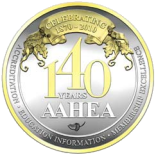Philosophy of Education: The Secret To Better Teaching
28th February 2025

'Philosophy is too hard!'
'It's not for teachers!'
Hold that thought!
What if this blog exposes that you already use philosophy in your classroom?
Take a peek into any teachers' break room. You will hear them talk about helping struggling students, making lessons more fun, or dealing with classroom challenges. That is not just a casual chat - it is teachers doing philosophy of education without realizing it.
The Hidden Connection Between Philosophy and Everyday Teaching
Look at your lesson plans. Each choice tells a story. When you pick group work over solo tasks, that is philosophy. When you decide to teach math through real-world problems instead of worksheets, that is philosophy too!
Your teaching style comes from your beliefs about learning. Some teachers swear by quiet, orderly classrooms. Others love the buzz of active learning. Neither is wrong - they are just different ways of thinking about how kids learn best.
Every teacher has a unique style. Some love structure, while others embrace flexibility. But what guides these choices? It is not just experience- it is philosophy in action.
Four Simple Ways Philosophy Already Shapes Your Teaching
There are different ways to approach teaching, and whether you realize it or not, your methods align with one (or more) of these four philosophies:
- The Perennialism Approach: When you teach kids to think, understand great stories, and solve problems, focusing on skills and ideas that stay useful forever.
- The Essentialism Approach: Create a strong foundation before adding fancy details, ensuring students master key skills before moving to complex topics.
- The Progressivism Approach: Use projects, experiments, and real-world problems to make learning stick.
- The Reconstructionism Approach: Help students see how they can fix problems in their community and beyond, turning classroom learning into real-world action.
Moreover, your teaching philosophy helps you make decisions with confidence. It helps you:
- Pick a suitable teaching method for each lesson
- Support different learning styles
- Know when to stick to the plan and when to change it
- Turn classroom problems into learning chances
Why Should Teachers Study Philosophy? Practical Benefits
By now, you know that philosophy is deeply rooted in your teaching style. However, if you strive to improve your skills, you should strengthen your grip on teaching philosophy. Why? Because it empowers you to adapt, grow, and make learning more meaningful for your students.
It helps you in the following ways:
- Making Smarter Teaching Decisions
A great educator understands that teaching is more than just simply delivering lessons. It is about making sharp, informed choices every single day. Following the curriculum blindly won't help. You must think critically, question what works, and adjust your methods for real impact. Studying philosophy helps sharpen this skill, so every lesson feels more purposeful.
- Mastering the Art of Problem-Solving
No two classrooms are the same. Some students learn quickly, while others struggle. Ups and downs happen. Challenges pile up. But here's the thing- philosophy trains your mind to see problems from different angles. It teaches ethical reasoning, helping you handle tough situations with confidence and creativity.
- Staying Resilient on Tough Days
Some days, teaching feels like the most rewarding job in the world. Other days, not so much. But when you understand the philosophy behind education, setbacks do not feel like failures. They are part of the process. It shifts your mindset, making patience, adaptability, and emotional strength second nature.
- Creating a Positive Classroom Atmosphere
A well-managed class is not one where students obey out of fear. It is one where they understand the value of discipline. By applying psychological and philosophical insights, you can create a learning environment where students feel motivated, not controlled.
- Building Stronger Connections with Students
Remember, students are not blank slates. They bring emotions, dreams, and struggles into the classroom. Educational philosophies like existentialism (which values student autonomy) and pragmatism (which focuses on real-world learning) help you understand how students think and learn. And when students feel understood, engagement skyrockets.
- Standing Out as a Leader
A solid grasp of educational philosophy puts you ahead- be it about contributing to meaningful discussions, mentoring new educators, or shaping better school policies. It is the difference between casually being part of the system and actively improving it.
- Staying Ahead in an Ever-Changing World
New teaching methods, tools, and challenges emerge non-stop. When you embrace philosophy, you develop a growth mindset, stay open to fresh ideas, and continuously refine your craft. It is the key to staying relevant and passionate about teaching for years to come.
Bottom Line
Teachers who have completed online teacher training courses in China claim that if you are serious about becoming the best teacher you can be, studying philosophy is necessary. It helps you earn the power to shape young minds, create meaningful learning experiences, and inspire students in ways that textbooks alone never could. And yes, it is not extra work - it makes your current teaching style better and more fun.
We believe education should be accessible for everyone. That’s why we don’t charge for our blogs. Find the right course that will help you in your career with us, contact us at - 6621056101. You can mail us at act@asiancollegeofteachers.com.
Written By : Varsha











